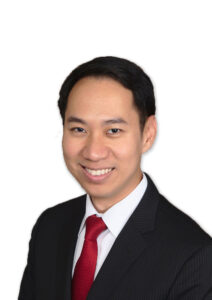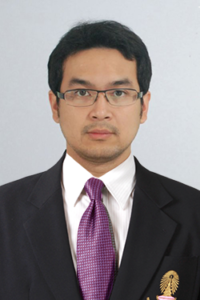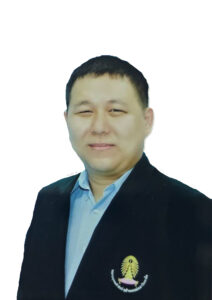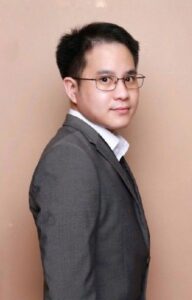Medical Education

DANAI WANGSATURAKA

Assistant Professor
Department of Pharmacology, Faculty of Medicine, Chulalongkorn University
Research interest :
- medical education
Dr Danai Wangsaturaka is currently an assistant dean for academic affairs at the Faculty of Medicine, Chulalongkorn University. After obtaining his MD degree, he furthered his study in Masters and PhD at Center for Medical Education, University of Dundee, Scotland. He has been a key person in curriculum planning, curriculum evaluation, faculty development and student engagement at his institution. His long-standing contribution in student engagement has resulted in Faculty of Medicine, Chulalongkorn University achieving ASPIRE-to-Excellence Award in Student Engagement in 2015 and him being awarded the National Role Model Teacher in Student Engagement in 2017.

PARIT MEKAROONKAMOL

Assistant Professor
Division of Gastroenterology, Department of Medicine, King Chulalongkorn Memorial Hospital
Research interest :
- Pancreatobiliary diseases
- Endoscopy
- Innovation in gastroenterology
- Artificial intelligence in Gastroenterology
- Medical education on simulator-based training
Dr. Mekaroonkamol is specialized in Gastroenterology and Advanced Endoscopy. His scholarly clinical endeavor centers on the innovative diagnostic and therapeutic endoscopic modalities for numerous digestive diseases, particularly on acute pancreatitis, obesity medicine, and gastric per-oral endoscopic pyloromyotomy (GPOEM), a novel endoscopic procedure to treat gastroparesis. He has published in many leading tier 1 journals in the field. His ongoing randomized controlled trials include studies on novel therapies for severe pancreatitis, preventive measures to reduce post-ERCP pancreatitis, and peroral endoscopic myotomy for achalasia. Conceptualizing project will focus on AI in Gastroenterology, Medical education on simulator-based endoscopy training, and bariatric endoscopy.

SARAN THANTAVISUT

Assistant Professor
Department of Orthopaedic, Chulalongkorn University
Research interest :
- Orthopaedic Trauma
- Geriatric Hip fracture
- Adult reconstruction
- Medical invention
- Infection control
Asst. Prof Saran is an orthopaedic surgeon specialized in orthopaedic trauma and adult reconstruction. He is the pioneer and director of the “Hip Fracture Fast Track” program in King Chulalongkorn Memorial Hospital. His clinical research focused on surgical anatomy, novel surgical techniques, biomechanics study and geriatric trauma. He also achieved Ph.D. in biomedical engineering and currently performing various researches in collaboration with faculty of engineer, Faculty of pharmacy and Biochemistry departments. His non-clinical research focused on medical instrument invention, biomaterials, infection control modalities, 3D printing in medicine and controlled release medication.

CHAROENCHAI PUTTIPANYALEARS

Lecturer
Center of Excellence in Molecular Genetics of Cancer and Human Disease, Department of Anatomy, Faculty of Medicine, Chulalongkorn University
Research interest :
- cancer screening
- cancer genetics
- epigenetics
Dr. Charoenchai Puttipanyalears is affiliated to Medicine, Chulalongkorn University. He has authored and co-authored several national and international publications and also working as a reviewer for reputed professional journals. His research mainly focused on cancer screening marker, cancer genetics and epigenetics especially for WBCs marker. He is having an active association with different societies and academies around the world.

SIRA VACHTIMANONT

Lecturer
Nuclear Medicine Unit, Department of Radiology, King Chulalongkorn Memorial Hospital and Faculty of Medicine Chulalongkorn University
Research interest :
- Nuclear medicine and molecular imaging (SPECT/CT and PET/CT) in cancer, inflammation and cardiology
- Technology-enhanced learning
After graduated from the Faculty of Medicine, Chulalongkorn University, I worked as a teaching assistant before going to residency training on nuclear medicine. After becoming a board-certified nuclear medicine physician and having learnt about how physiological process in human body can be elegantly visualized using radiotracers, I hope to encourage medical students an any physician alike to recognize the importance of basic science and enhanced their learning experience.

